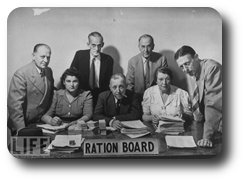Saturday 30 October, 1.30pm until 3.00pm, Lecture Theatre 1
 Innovations in clinical practice, drugs and other technologies can improve the quality and extent of patients’ lives – but they are often expensive. Established in 1999, the National Institute for Health and Clinical Excellence (NICE) has been at the centre of numerous controversies over its recommendations about which new treatments are sufficiently cost effective to be made available on the NHS. With the Organisation for Economic Co-operation and Development reporting that Europe’s drug bill rose by 50% in real terms in a decade, to stand at £446bn in 2007, and with governments facing stringent budget constraints, difficult decisions lie ahead. But for those facing debilitating or life threatening illness, can a price be put on life?
Innovations in clinical practice, drugs and other technologies can improve the quality and extent of patients’ lives – but they are often expensive. Established in 1999, the National Institute for Health and Clinical Excellence (NICE) has been at the centre of numerous controversies over its recommendations about which new treatments are sufficiently cost effective to be made available on the NHS. With the Organisation for Economic Co-operation and Development reporting that Europe’s drug bill rose by 50% in real terms in a decade, to stand at £446bn in 2007, and with governments facing stringent budget constraints, difficult decisions lie ahead. But for those facing debilitating or life threatening illness, can a price be put on life?
NICE compares new treatments with current standard practice and estimates the additional cost per ‘quality adjusted life year’ (QALY) achieved. In May, NICE refused to recommend the new liver cancer drug sorafenib, citing its £27,000 a year cost and the fact that it only extends life by around 10 weeks. Critics point out an extra few months at the end of life can be precious to the patients involved, and argue that the UK lags behind its European counterparts in making new drugs available. So should we be prepared to pay as much as necessary to save lives? In 2005, Patricia Hewitt, then Health Secretary, seemed to think so when she bypassed NICE to fast-track the breast cancer drug Herceptin. And in the run-up to the election David Cameron promised the Conservatives would provide cancer patients with drugs refused approval by NICE. Is this just political grandstanding, or are politicians right to put patients before budgets? Some argue the real problem is that drug companies are overpricing new medicines to boost profits at a time when a lot of their big earning drugs are coming off patent. Drug companies respond by citing the huge costs involved in drug development.
Perhaps a national body providing guidance, based on necessarily uncertain data, can never satisfy the demands and anxieties of patients, especially given our growing cultural pre-occupation with health. Successive governments have promoted the idea of patient choice, and patient lobby groups are increasingly influential. A heady mixture of emotive arguments and commercial interests has seemingly fuelled an insatiable demand for new drugs and treatments. In this context, have medical professionals lost their ability to make decisions in the best interests of their patients? Is NICE the answer, or part of the problem?
Listen to session audio:
 | Professor Sir Michael Rawlins chairman, National Institute for Health and Clinical Excellence |
 | Professor Raymond Tallis fellow, Academy of Medical Sciences; author, philosopher, critic and poet; recent books include NHS SOS and Aping Mankind; chair, Healthcare Professionals for Assisted Dying |
 | John Harris Lord Alliance Professor of Bioethics, University of Manchester; joint editor-in-chief The Journal of Medical Ethics; member, Human Genetics Commission |
 | Jonathan Waxman professor of oncology, Imperial; consultant, Hammersmith and West Middlesex Hospitals |
| Chair: | |

|
Tony Gilland
associate fellow, Academy of Ideas |
Britain's healthcare cost agency plans to end controversial restrictions on Alzheimer's drugs in a policy U-turn that could give hundreds of thousands of patients access to previously denied medicines.
Ben Hirschler, Reuters, 7 October 2010The National Institute for Health and Clinical Excellence (Nice), which ruled out free cancer treatments, is splashing out on new staff
Robert Watts and Jamie McGinnes, The Sunday Times, 30 August 2010The press reported Avastin's 'life-saving properties' with an anecdote about one person, totally ignoring the treatment's reality
Ben Goldacre, Guardian, 28 August 2010The cruel reality is that it's neither NICE nor the NHS that has given them a
HELEN JAMISON, The Times Eureka Zone Blog, 17 June 2010Drug companies are not villains, they are responsible for most medical breakthroughs. So why make life hard for them?
Jonathan Waxman, The Times, 11 February 2010Terminally ill patients are being “penalised” for having rare conditions charities have warned after a kidney cancer medication was ruled too expensive for the NHS
Kate Devlin, Daily Telegraph, 10 February 2010When the UK National Health Service (NHS) began, Professor Sir Michael Rawlins recalls how his mother said “It was fantastic. I no longer have to worry about the doctor's bills”. Rawlins now has a key role in the NHS as Chair of the National Institute for Health and Clinical Excellence (NICE), the body that advises the NHS on clinical guidelines and the value of health-care interventions.
Kelly Morris, The Lancet, 18 April 2009This month, the UK's High Court ruled in favour of the National Institute for Health and Clinical Excellence decision to limit access to drugs for Alzheimer's disease. But the legal win is unlikely to stem the recent spate of controversies surrounding the institute.
Richard Hoey, The Lancet, 25 August 2007